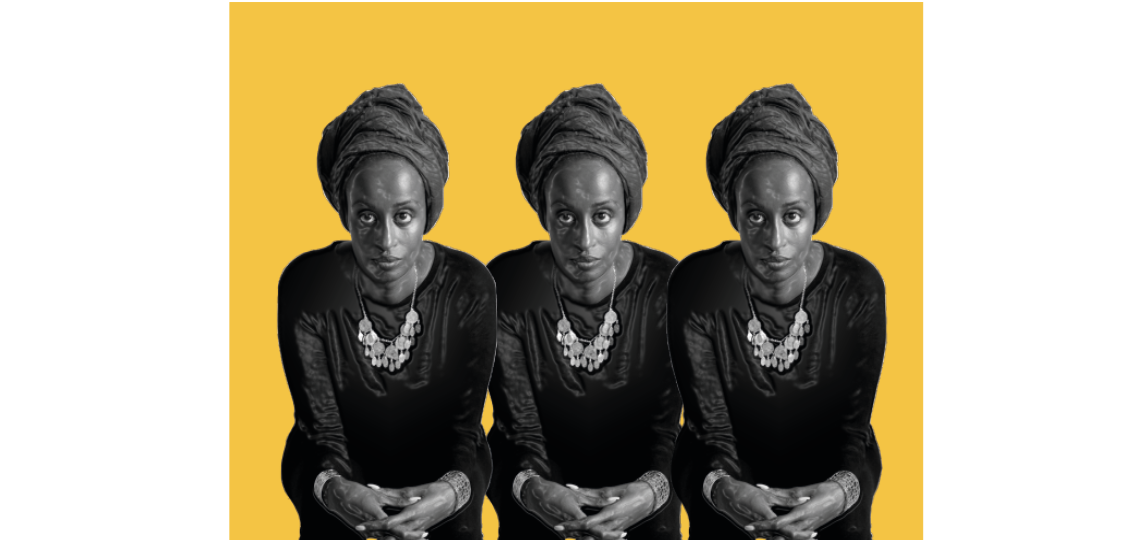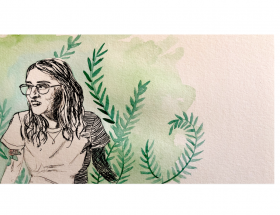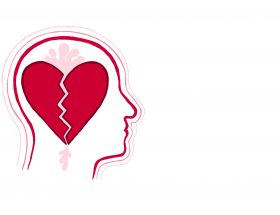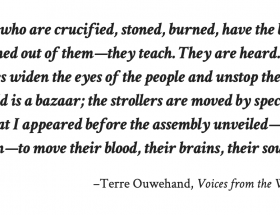[Content warning: this article includes mentions of physical violence on women.]
A profile. From the old Italian profilo, from profilare, meaning to sketch lightly, what we would call un esbozo in Spanish, a penciled draft of an image, lines and the imprint of an eraser everywhere on a piece of paper– something which, despite being unfinished, is undeniably promising, already a sign of its author’s success. Leyla Hussein’s career is both.
When I first looked up Hussein on Google, I could feel shame dripping from my face on to the trackpad– I, someone who prides herself on her interest in activism and the rise of female leaders, someone who deeply believes that change can be enacted from the bottom-up, I, I– I didn’t know anything about her. I had seen her name plastered on pastel-colored posts on Instagram and Facebook, Leyla for Rector, but I had failed to realize the magnitude of the persona that the sweet-looking typography tried to encompass. Hussein’s name slid into my mind because she’s running for Rector of the University of St Andrews, but it was reading about her work, her goals, that made Leyla, the human behind the slogan, genuinely captivate me.
But why am I trying to sell her to you? The merits of her efforts boom louder than any tippy-tapping on a keyboard. You can judge her yourself.
1987, Somalia, only a couple of years before the beginning of the Somalian Civil War. A seven-year-old girl, a blade, a scream. Blood. Mutilation.
Hussein, like over 200 million women and girls alive today, is a survivor of female genital mutilation (FGM), a practice that has surged during the pandemic and which is still far from being eradicated. Media portrayals of survivors of FGM tend to focus on women as victims: victims of violence, of pain, of a patriarchal structure that cages them and inevitably leads to them partaking in the practice, presenting a seemingly endless cycle that denies them any form of agency. Media portrayals present a version of survivors that boils down to victimhood point-blank-period. Hussein’s career proves this reductive logic wrong.
After realizing that the panic attacks that she was experiencing during her vaginal examinations prior and post-childbirth were physical manifestations of flashbacks to her subjection to FGM, Hussein decided to dedicate her life to fight against the practice. She co-founded Daughters of Eve in 2010, a UK-based non-profit which worked to protect girls and young women who are either at risk of FGM or have been affected by it. More widely, Daughters of Eve sought to defend women’s sexual, physical, mental, and reproductive healthcare rights, by making support and resources available to all those who may need it. The approach transcended the individual level: its online campaign demanding a national strategy and action plan against FGM helped bring FGM and related issues to the forefront of the government’s agenda, resulting, in 2019, in a change to the National Curriculum that would lead to secondary school pupils being taught about grooming, domestic abuse, forced marriage, and FGM. It’s therefore not surprising that Hussein was nominated as one of the most influential women in the UK in the BBC’s 2014 Woman’s Hour power list.
A war, however, is rarely won on a single front, and Hussein knows this.
She also founded and is the current Project Development Leader of the Dahlia Project, a service set up in partnership with the Manor Gardens Welfare Trust. Following a similar structure to that of Daughter’s of Eve, the Dahlia Project offers psychological and physical support to survivors of FGM, via therapeutic support groups, empowerment sessions, and workshops. While Hussein undeniably stands out due to her desire to be directly engaged with on-the-ground efforts to eliminate FGM, this hasn’t stopped her from also playing a role in organizations at an institutional level. Her work as a health professional led to her becoming an advisor to the END FGM European campaign, a movement seeking to end all forms of FGM in Europe supported by Amnesty International. She has spoken at the Houses of Parliament in Vienna, Cyprus, London. She sits on the Board of Trustees of the Desert Flower Foundation Advisory Group– founded in 2002 by a former UN Ambassador against FGM, Waris Dirie– and has worked closely with the Metropolitan Police on Project Azure, a coordinated strategy to identify and protect (potential) victims of FGM. She has…
… she has done it all, it seems. Well, there’s more.
I could tell you all about her articles for The Guardian, her TEDx talk with Hoda Ali, and the long list of top-ranking universities– we’re thinking Oxford, Cambridge, Harvard, Georgetown– she’s been invited to speak at, to discuss her vision, her fight, her objectives. I could give you a list of all the awards she has received, from her Ambassador for Peace Prize by the Inter-religious and International Peace Federation– which essentially crowns her as one of those individuals who devote their lives to promoting universal moral values, cooperation, harmony, just an overarching ideal of good in a nutshell–, to the fact that she was appointed Officer of the Order of the British Empire in 2019 because of her fight against FGM and in favor of gender equality.
I could explain why she got nominated for a BAFTA in 2014 for The Cruel Cut, a documentary following her efforts to end FGM in the UK, or what her being in Barbara Miller’s #FemalePleasure– note to self: must watch– says about her vision of the role and position of women in society, and how groundbreaking that is, even today.
I could tell you about all of these things because she’s done them. Let that sink in. A woman who is only about to turn 40 years old– don’t let Hollywood lie to you, a 40-year-old woman is still YOUNG!– has already made a difference, a change. And not for herself– the cut can never be reverted– but for others.
Now, I’m not trying to place Leyla Hussein on the pedestal of saints, partly because that’s a pedestal I fundamentally disagree with based on its history of concealing some of the, often cruel, actions carried out by its inhabitants– read Mother Teresa and the AIDS epidemic in Subsaharan Africa–, and partly because, as an atheist, the image of the saint has never quite convinced me. I’m trying to draw attention to the fact that, despite all her work, despite fighting against something we should all be concerned about, not that many people seem to know about her.
Hussein only has over 7,000 followers on Instagram– an astonishingly low number for someone who’s received the glorious blue tick™️ of official verification–, and while I know the platform is not an all-powerful god that determines value, I deem it fair to argue that, when it comes to public personalities, such as Hussein, follower count can tell us a lot about their outreach. So, why? Why only 7,000(ish)? Is it because she is a black, immigrant woman, an intersection of categories that falls into the most discriminated against? Is it because her work centers on FGM, a practice which, despite causing lasting complications and sometimes even death, has been largely treated by Western countries as a problem of the non-Western other, as an issue that’s nowhere the top of their agenda?
Something tells me it may be a combination of both.
Something tells me that, were Leyla Hussein a white American male fighting FGM, she would be better known. Something tells me that the link between her activism and her desire to protect her daughter would automatically give her the title of heroic parent, that her status as a fighter would be deemed more important than that of victim. Something tells me that her presence, her vision, would have been more easily welcome in more spaces.
I have no way of knowing– but something tells me I’m not wrong.




